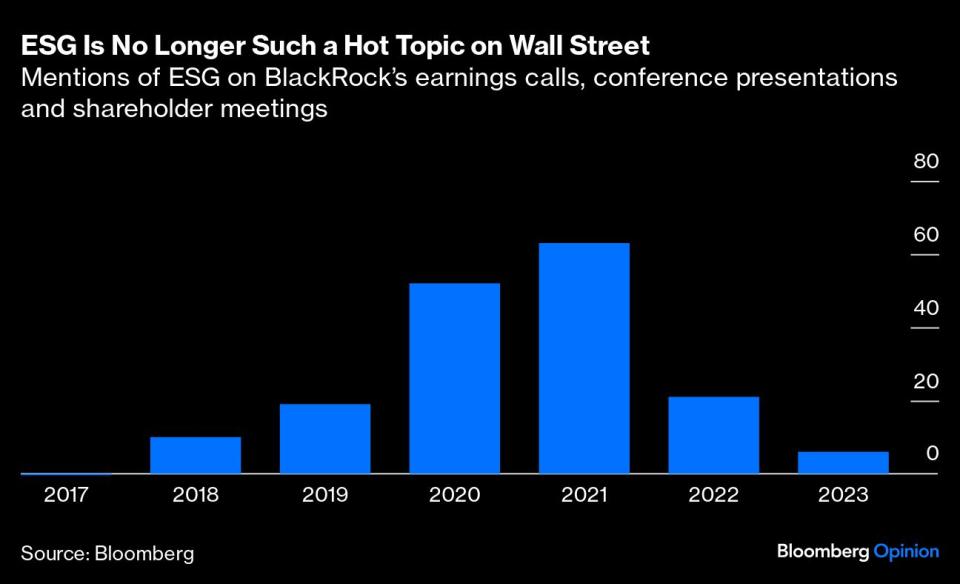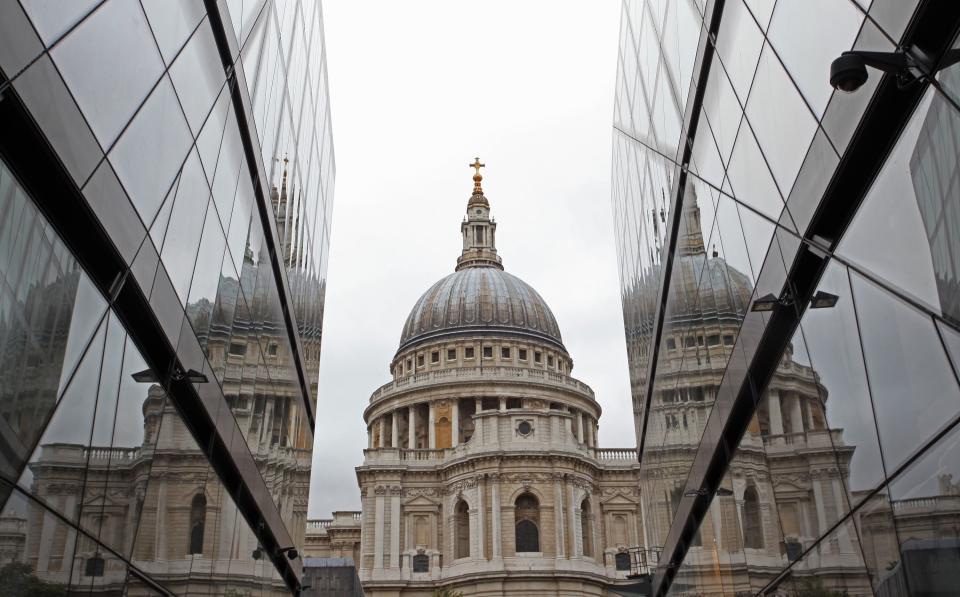Church of England Targets a New Group of Emitters
(Bloomberg) -- Just months after announcing plans to sell its oil and gas holdings, the Church of England Pensions Board is now going after the biggest consumers of fossil fuels.
Most Read from Bloomberg
Boeing Growth Plans Set Back as Regulator Blocks Output Rise
Russia Says Ukraine Downed Plane Carrying Prisoners for Swap
How Yemen’s Houthi Attacks Are Hurting the Global Supply Chain
Those include automakers, utilities, steel companies—and also banks. The focus is on “the key blockers of climate policy,” said Laura Hillis, the board’s director of climate and environment, while speaking last week at an event about the 2024 proxy season.
Among investors, the Church of England stands out for its aggressive stance against the world’s largest polluters. Many asset managers say they’re serious about climate change, but far fewer actually do anything concrete to back up their words.
The church, which manages roughly £3.2 billion ($4.1 billion), said in June that it will sell its stake in Shell Plc as part of a total exit from the oil-and-gas sector. The decision followed years of unsuccessful attempts to get the industry to “decarbonize in line with the aims of the Paris Agreement.”
Next up for the church are companies such as Volkswagen AG, Renault SA, National Grid Plc, BMW AG, Toyota Motor Corp. and Mercedes-Benz Group AG. The church has said it also continues to concentrate on the mining industry.
Read More: Church's $40 Trillion Social Investing Push Gets a Reality Check
The latest initiative is aimed at “really helping drive” change, Hillis said. As part of this effort, “we’re going to be focused on the biggest users of fossil fuels, so companies like those in the auto sector,” as well as utilities and steel companies, Hillis said.
“We’re also going to be engaging with banks on their financing with a particular focus on fossil-fuel financing,” she said.
Banks are at the fulcrum of the climate debate, as they ultimately provide the funding that will drive the energy transition away from oil, gas and coal. And the data so far clearly shows that lenders are far from helping the world achieve net zero emissions.
The most recent report from BloombergNEF shows that the ratio of spending on low-carbon infrastructure relative to fossil fuels needs to reach 4 to 1 by 2030. At the end of 2022, the so-called energy-supply banking ratio, which includes debt and equity underwriting, was 0.73 to—slightly worse than the 0.75-to-1 ratio reported in 2021.
Read More: Wall Street Makes Zero Progress in Energy Finance Transition
The Church of England established its ethical investment policy in 1948, when its endowment started buying stocks. The new plan is emerging after a year marked by record high temperatures across the globe and a rollback on climate pledges, particularly by energy companies.
The shift in strategy follows a “rethink” set in motion by the decision to divest from the oil industry after five years of engagement, Hillis said. The board sold shares of Shell, BP and at least nine other oil companies.
Read More: BP Slows Retreat From Oil as Russia War Drives Record Profit
While the church says it’s open to reinvesting in oil and gas if the companies show signs of aligning their operations with the Paris Agreement, the prospect of that happening is unlikely “based on what we’re seeing from the industry,” Hillis said.
“The best, long-term outcome is to get very good, very robust climate policy in place as soon as possible to help smooth the way for the full decarbonization of the global economy,” she said.
The church released a statement in November in which Adam Matthews, chief responsible investment officer for the Church of England Pensions Board, summed up the church’s position.
He wrote that climate change is “a clear and present risk that will be far more damaging to investment portfolios and to the global economy if we fail to transition to net zero in an orderly, timely way.” That’s why, he says, the focus is on “key systemic risks like demand for fossil fuels, corporate climate lobbying, climate finance in emerging markets, and seeking strong ambition from companies.”
Sustainable finance in brief
Wall Street is hoping a subtle change in how it advertises its sustainability aspirations will inoculate it against attacks by Republicans, often made on behalf of Big Oil. This month, a $3.3 trillion alliance calling itself the Paris Aligned Asset Owners became the latest green coalition to change the language on its website to clarify that signatories make “individual” commitments in line with their “fiduciary obligations.” This new, seemingly innocuous language tweak marks a departure from earlier statements that referred to joint industry efforts to reduce carbon emissions. Other net-zero groups have made similar adjustments to show that members aren’t coordinating carbon dioxide reductions and that the ultimate goal is to protect asset values. In America, the GOP has often claimed that environmental, social and governance strategies aren’t in the best financial interest of shareholders. Republican politicians have also alleged that such climate alliances represent a form of collusion that warrants antitrust enforcement. In New Hampshire, GOP lawmakers have gone so far as to seek to criminalize ESG investing.
Speaking of Big Oil, Exxon sued US and Dutch climate activist investors to remove their “extreme agenda” from its annual shareholder meetings.
About nine banks are currently vying for a regional share of an ESG debt market that Barclays Plc estimates could grow to $800 billion.
Does anyone benefit from accelerating climate destruction? The science of catastrophes has generated huge returns for hedge funds.
(Adds focus on mining industry in fifth paragraph. An earlier version was corrected to include automakers in the deck and second paragraph.)
Most Read from Bloomberg Businessweek
Goldman, Lazard Look to Ex-Spies to Gain an Edge in Volatile World
How the West’s Favorite Autocrat Engineered Africa’s Most Dramatic Turnaround
©2024 Bloomberg L.P.




